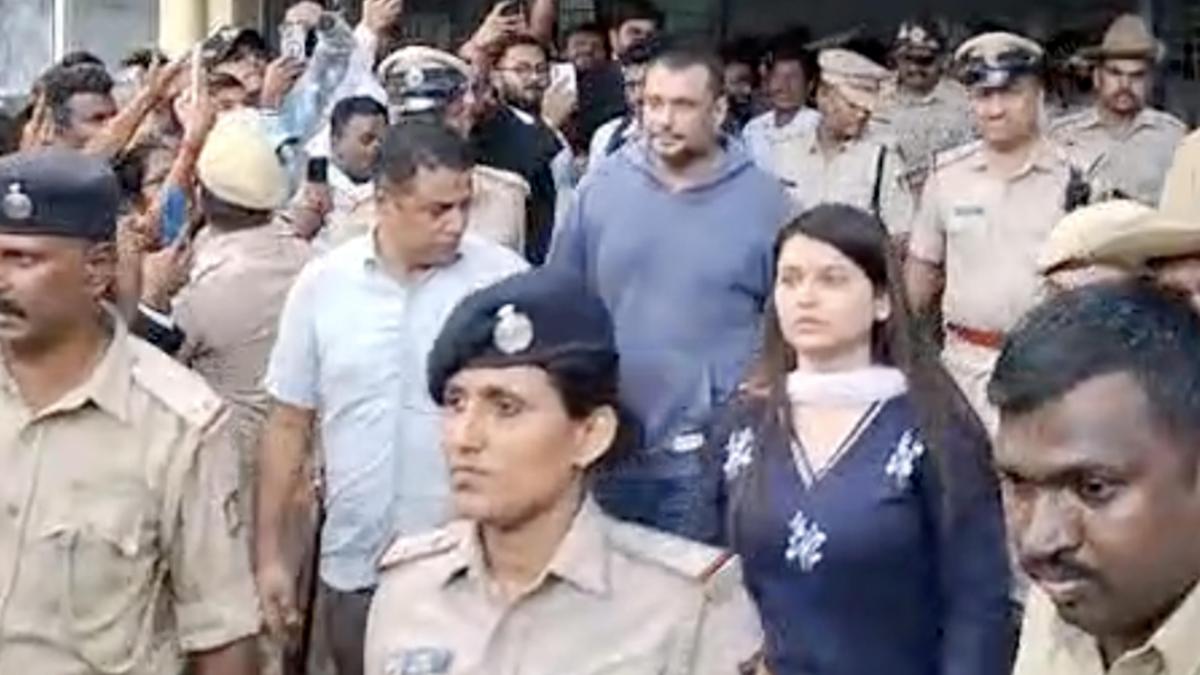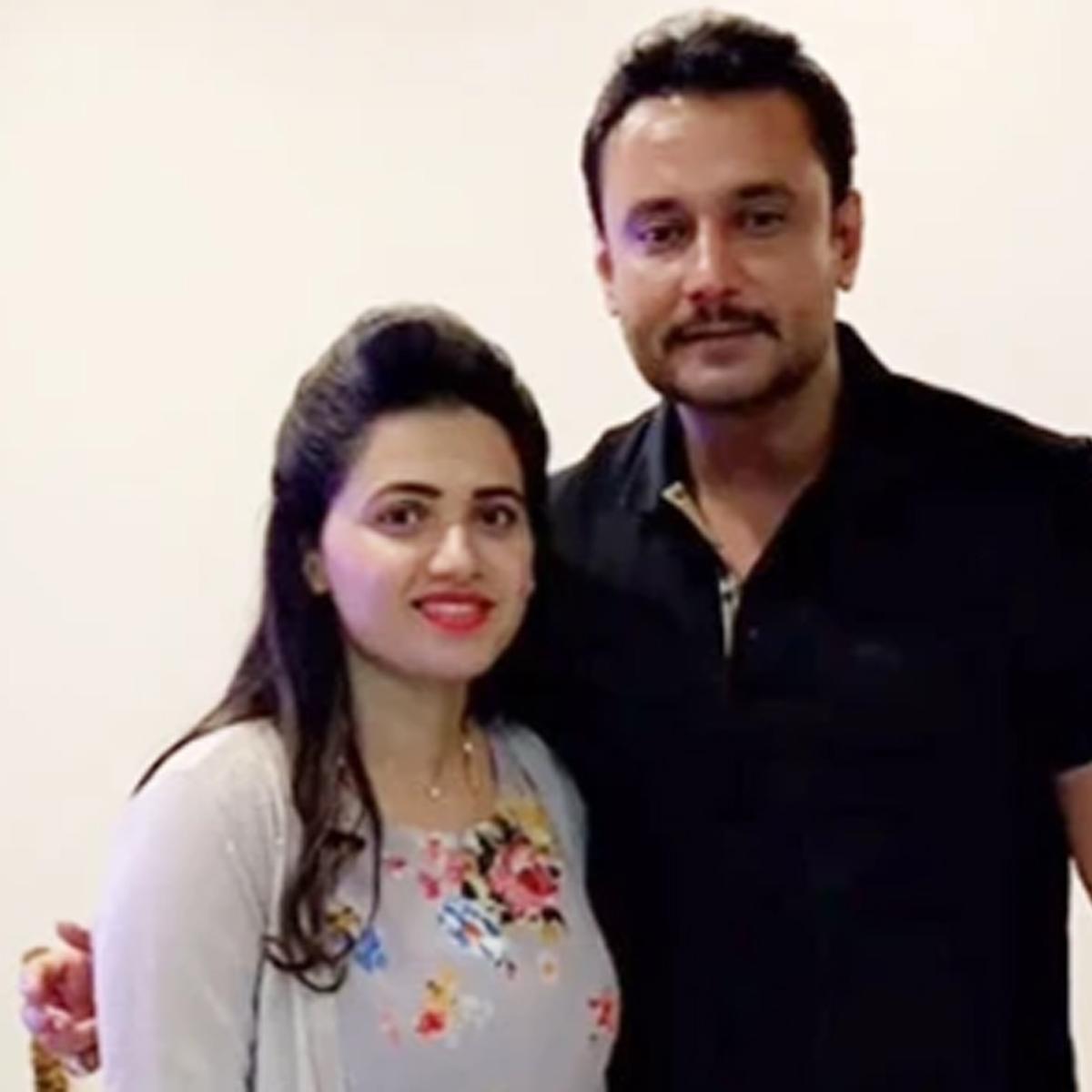On June 9, 2024, a dark tragedy struck Bengaluru. The battered body of Renukaswamy, a 33-year-old resident of Chitradurga, was discovered near a stormwater drain, setting off a media and police storm across Karnataka. What first appeared as a mysterious death quickly spiraled into a public scandal after investigators uncovered evidence implicating Kannada superstar Darshan Thoogudeepa, his close associate Pavithra Gowda, and 15 others in the kidnapping, brutal assault, and murder of the young fan. Now, as a Bengaluru court has officially framed charges and set November 10, 2025 for the start of a high-profile trial, the case serves as a grim mirror for celebrity, justice, and accountability in Indian public life.
The murder’s motive grew from a disturbing foundation: Renukaswamy allegedly sent obscene messages to Pavithra Gowda on Instagram, sharply criticizing her relationship with the married Darshan. Investigators believe that this triggered a ruthless sequence of events, drawing together Darshan’s circle of associates, drivers, fan leaders, and friends in an act of violent retribution. According to police, Renukaswamy was kidnapped from his hometown, driven to a shed in Pattanagere, and then subjected to hours of systematic torture—beaten with pipes, belts, and sticks, shocked with electrical wire, and left to die from multiple head and chest injuries.
Evidence against the accused has proven as shocking as the crime itself. Surveillance footage, location data, and confessions reveal a meticulously coordinated effort, from the luring of the victim and alleged planning messages to the ultimate attempts at destroying evidence. Multiple members of Darshan’s fan association, along with his personal aides and drivers, joined in the operation. Darshan and Pavithra are accused of remaining in constant contact during the assault, with messages and calls allegedly proving their real-time involvement in orchestrating the attack.
Fame, Fallout, and the Search for Justice
The aftermath has ruptured both the film industry and public confidence. Darshan, once known as the “Challenging Star,” enjoyed a spotless reputation among millions. Fans, devastated and divided, watched as their idol was arrested in Mysuru while filming, paraded through police custody, and later incarcerated in Bengaluru and Ballari jails. Throughout, videos soon surfaced showing Darshan receiving special privileges—scenes that only sharpened public skepticism about the justice process and led to the suspension of jail officials and a broader probe into celebrity influence within the system.

Pavithra Gowda, for her part, was also arrested and has fought for bail rights, ultimately denied by the Supreme Court amid fears of witness tampering and evidence suppression. The case’s relentless visibility—fueled by social media campaigns, protests, court crowd surges, and round-the-clock television debates—forced the state administration and judiciary to move with rare speed and transparency.
Court proceedings remain tightly watched. When charges were framed in November 2025, the courtroom was packed with supporters, lawyers, family, and members of the media, leading the judge to shift hearings to a closed chamber to maintain order. The accused pleaded not guilty. Defense attorneys argued that Darshan was being targeted due to his stardom and political enemies, while the prosecution cited the mental and digital evidence as overwhelming.
A Trial That Grips a State
The coming trial promises to be one of the most closely observed in Karnataka’s modern history. Testimonies from the victim’s family, digital forensics experts, and the accused themselves are expected to stretch over months. Legal experts believe that key issues will revolve around the organization of the crime, attempts to misdirect police with false confessions, and whether celebrity privilege shielded the accused from faster indictment in the early stages.
The charge sheet, 1,300 pages thick, chronicles the crime in chilling detail: the formation of an unlawful assembly, conspiracy to kidnap, brutal murder, destruction of evidence, and repeated efforts to bribe, coach, or intimidate witnesses. Every step is corroborated with phone records, payment information, CCTV footage, and statements from a web of accomplices—some of whom are believed to have been paid to take the fall for Darshan’s role.
For the police, the case is a test of their ability to hold even the most wealthy and influential to account. The Supreme Court’s intervention, which saw Darshan’s bail revoked months after it was granted by the High Court, was a sharp reminder that in cases of grave public outrage, legal and procedural rigor will be held to the highest possible standard.
Public Reckoning and Cultural Reflections
As the November 10 trial date nears, the broader implications of the Renukaswamy case ripple across society. It has forced tough questions about the power celebrities wield, the responsibilities of fan culture, and the ability of India’s justice system to function impartially amid intense social and political pressure.
Families hold vigils for Renukaswamy; the Kannada film industry has paused promotions, put projects on indefinite hold, and faces calls to adopt new ethical standards about how stars interact with fans and handle allegations. Youth movements have issued statements demanding justice, warning against the normalization of violence and abuse of power by public figures. Civil society groups monitor each development closely, noting that the outcome will shape not only legal precedent but public expectations around accountability and justice in high-profile cases.
For Darshan’s supporters and the industry, the scandal is also a tale of dashed hope. Many among his millions-strong fan base remain loyal, claiming a setup and conspiracy to malign a rural superstar who symbolized upward mobility and regional identity. Others, especially among youth, say the revelations have destroyed trust in the notion of celebrity itself.

The Road Ahead: Lessons for Karnataka
The Renukaswamy murder trial stands as a rare convergence of fame, crime, and the demand for justice. As the legal process unfolds, Karnataka watches with rare unity: some horrified, others hopeful, all wrestling with the reality that the boundaries between personal power and social responsibilities have never been starker. For the accused, the stakes are existential; for the public, the judgment will carry lessons far beyond one case.
Once the courtroom doors close on November 10 and witness after witness is summoned, what began as a gruesome crime will become an enduring story—one about celebrity, accountability, law, and the human cost of unchecked emotion and power. The final verdict, when it comes, will mark more than the end of a news cycle; it will echo through a state and a film industry searching for justice and a way forward.

The Renukaswamy murder case has reached another significant milestone as the Bengaluru City Civil and Sessions Court formally framed charges against Kannada superstar Darshan Thoogudeepa, his partner Pavithra Gowda, and 15 other accused. The hearing on November 3, 2025, saw the charges under Indian Penal Code Sections 302 (murder), 120B (criminal conspiracy), 364 (kidnapping to murder), and 201 (disappearance of evidence) read out in detail in the presence of all accused. Each pleaded not guilty, setting the stage for a high-profile trial scheduled to begin on November 10.
The case arises from the brutal killing of 33-year-old Renukaswamy from Chitradurga, whose body was found near a stormwater drain in Bengaluru on June 9, 2024. Police investigations revealed that the murder was alleged to have been orchestrated following abusive messages sent by Renukaswamy to Pavithra Gowda, which triggered a coordinated abduction and torture by Darshan’s close associates. The comprehensive charge sheet, running over 1,300 pages, includes confessions, call records, payment trails, and forensic evidence linking the accused to the crime.
The court hearing had to be shifted to a closed chamber due to an overwhelming crowd of supporters, media, and public curiosity. Following security protocols, only those directly involved in the case were permitted within, reflecting the intense public and media interest. The judge has scheduled a decision on whether to continue holding proceedings in-camera for the forthcoming trial date. Renukaswamy’s family has withheld public comment, preparing through legal counsel for the trial.
Darshan Thoogudeepa, once one of Kannada cinema’s most beloved stars, was arrested in Mysuru while filming a movie shortly after the murder came to light. He spent 131 days in Parappana Agrahara Central Prison before being granted interim bail in October 2024. However, his bail was revoked by the Supreme Court in August 2025 amid concerns over potential witness tampering and evidence manipulation. Pavithra Gowda similarly contested the bail revocation and approached the Supreme Court, which is currently reviewing her plea.
Following the framing of charges, the trial is anticipated to involve a rigorous examination of a range of critical evidence: confessions of several accused who surrendered after police custody extensions; digital communications indicating real-time coordination during the crime; forensic results detailing horrendous physical injuries suffered by Renukaswamy; and testimonies from eyewitnesses and police officials.
The case has sent ripples across Karnataka’s entertainment industry and society at large. It confronts uncomfortable questions about the intersection of fame, fanaticism, and the rule of law. Darshan’s prominence and massive fan base have complicated proceedings, but the thoroughness of the investigation under Commissioner B. Dayananda has been widely praised for its speed and clarity despite initial challenges.
As the trial unfolds, Karnataka awaits a verdict that promises to be a landmark in holding high-profile individuals accountable irrespective of their social stature. The outcome will resonate not only within the justice system but also influence public discourse on celebrity culture, fan behavior, and ethical responsibilities within the film fraternity.
The November 10 trial opening thus marks not only the start of a legal battle but a profound societal reckoning—testing Karnataka’s commitment to justice, transparency, and equality before the law in the face of powerful interests and complex emotions entwined in this tragic case.
Follow: Karnataka Government
Also read: Home | Channel 6 Network – Latest News, Breaking Updates: Politics, Business, Tech & More

